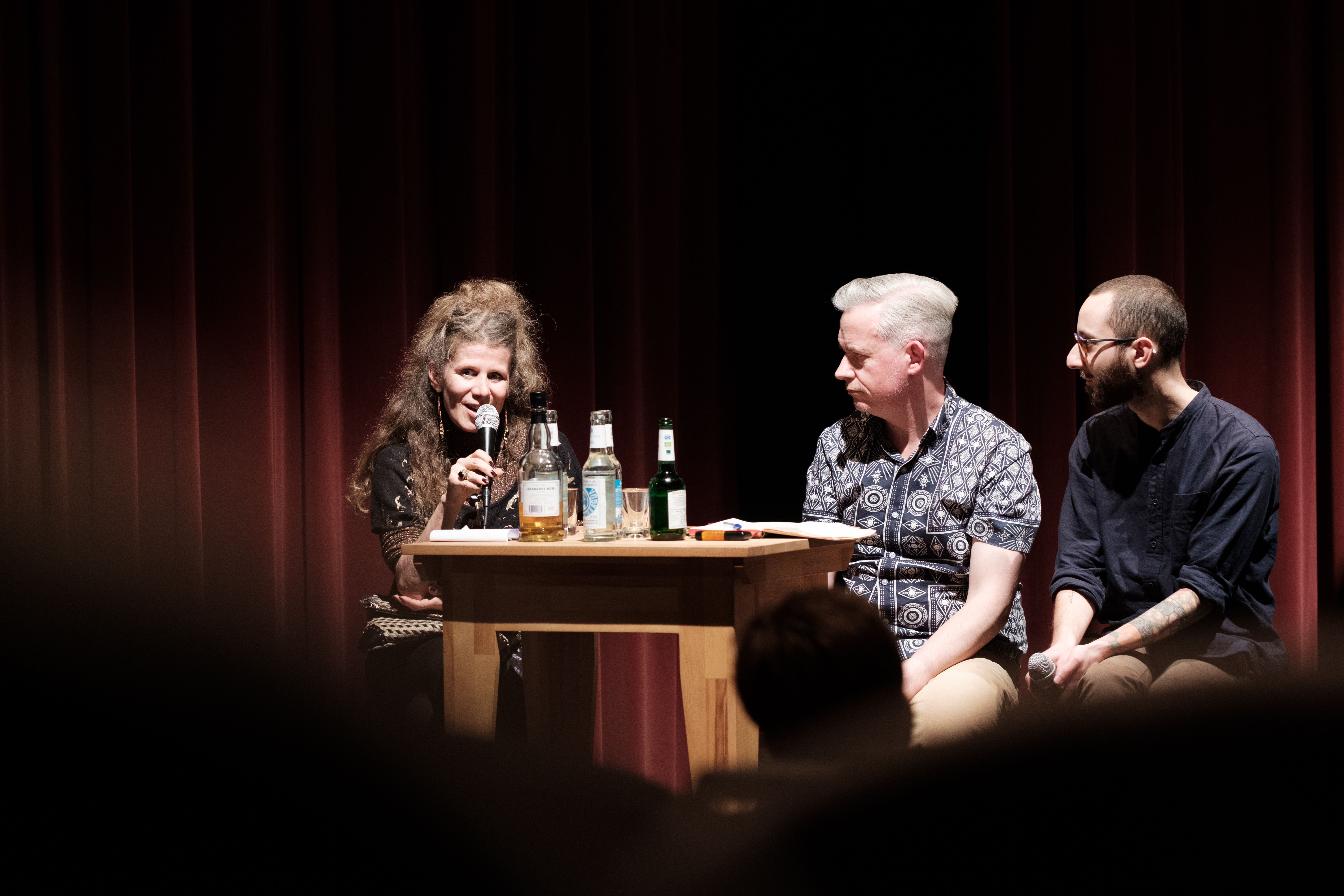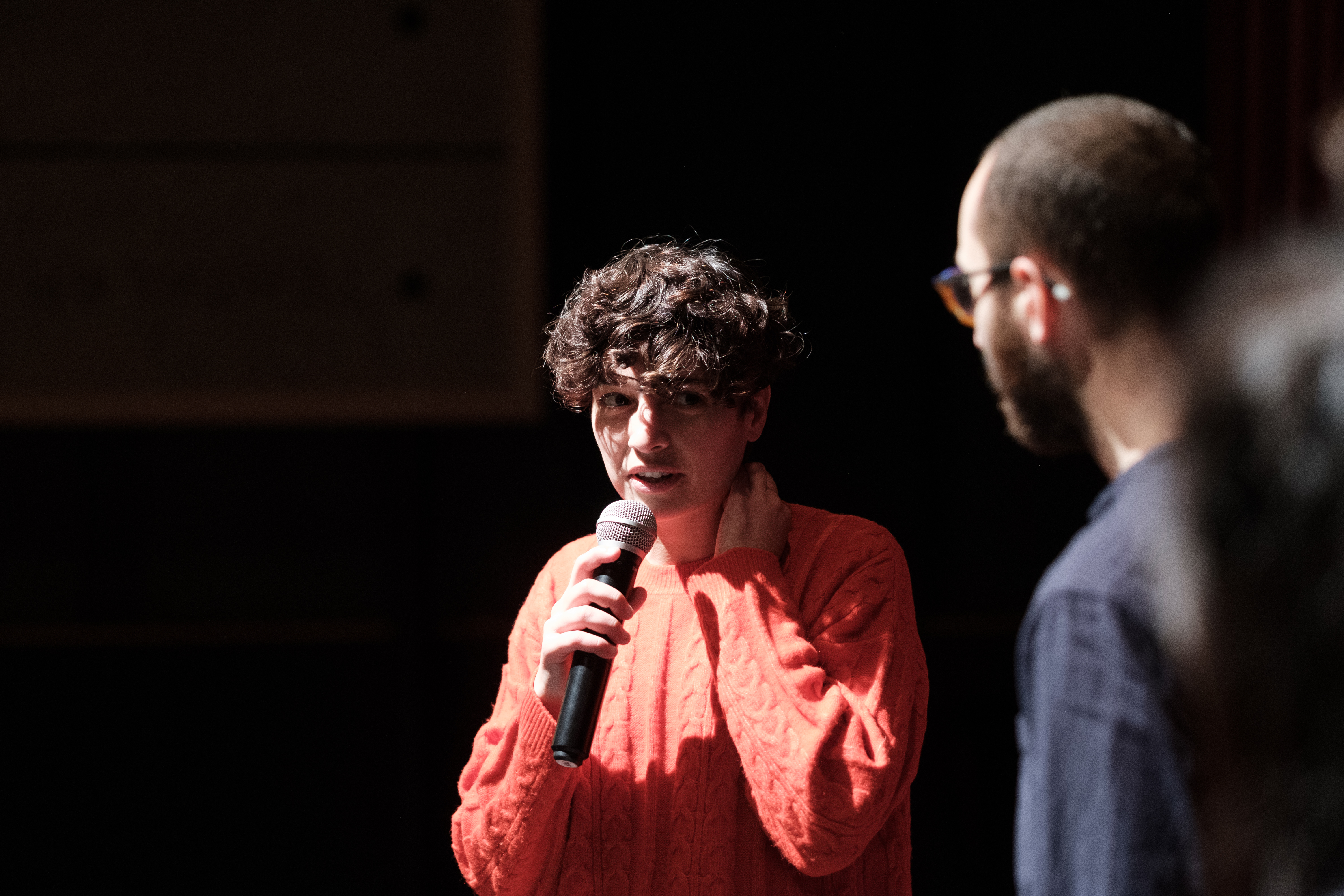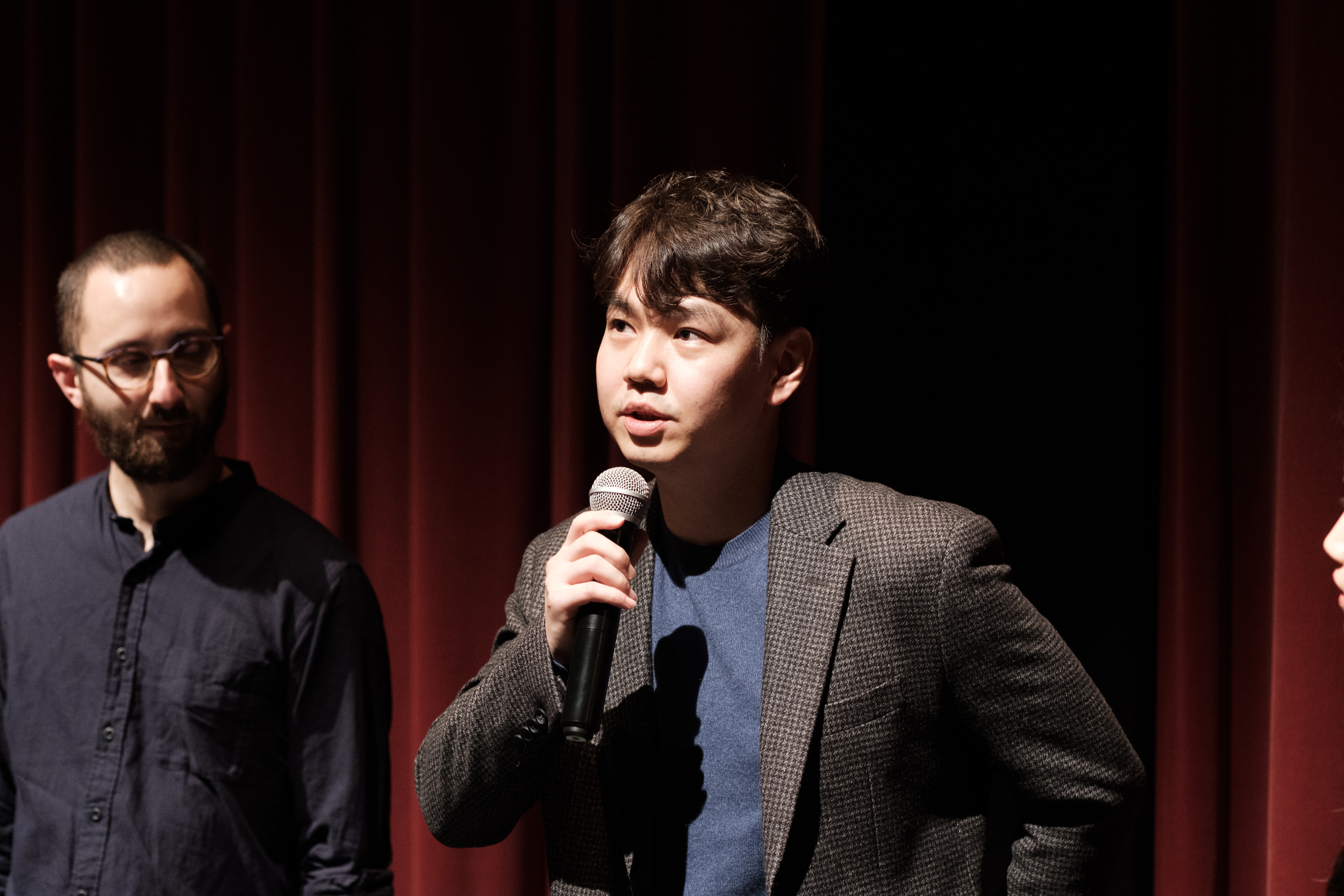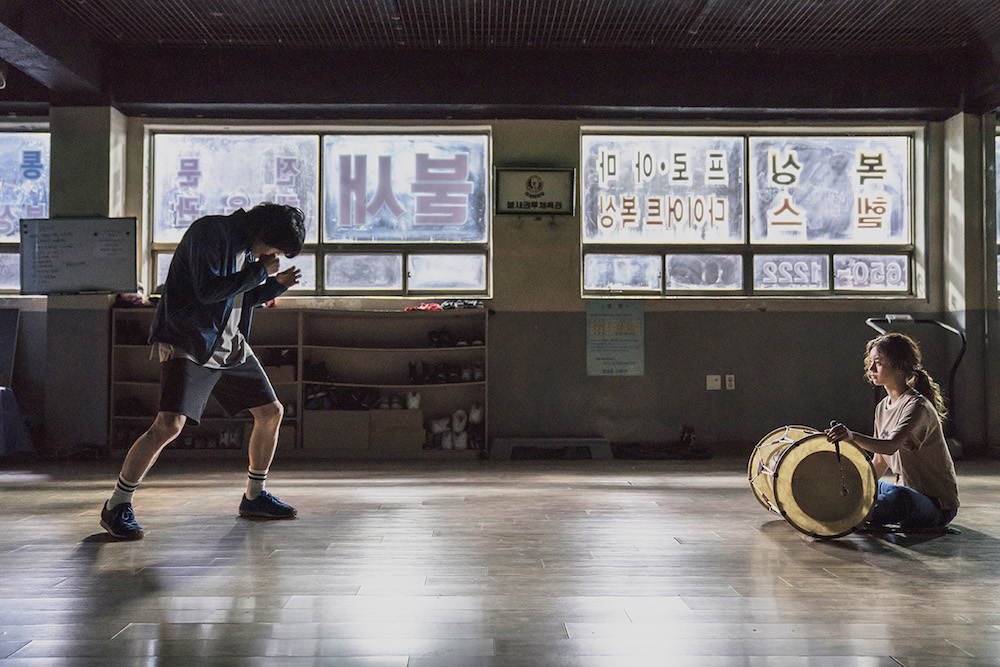Blog #6/20 – Insiders and Outsiders
By Savina Petkova
Questions of representation, genre, and the mediating role of criticism inspired the audience of Berlin Critics’ Week for an intense discussion well into the night of February 26th. Based on the premise of juxtaposing two different positions regarding the films screened that evening, the Critics’ Debate invited guests Xanaé Bove and Neil Young with Dennis Vetter as host and moderator. The Portuguese short film Dogs Barking at Birds by Leonor Teles preceded Jung Hyuk-ki’s My Punch-Drunk Boxer and both films were presented by the directors and crew members in attendance. Even though the films seemed to unite the two critics in a similar stance, the debate was heated and rewarding because of an oppositional audience.

While the films glided through gradual increases and decreases of emotional states along with their respective protagonists, they resonated on different levels of atmosphere and mood. A common theme can be strung between the Portuguese short and the Korean feature regarding urbanisation, city life, and the precarious social situations that arise from both. Yet, both films handle the topic in a light-hearted manner, to which their pairing testified and which was made apparent in the discussion following the screening. Dogs Barking at Birds tells a story about a family—a single mother with her four sons—facing an uncertain housing situation in Porto. Teles’s documentary schooling effortlessly breathes life into characters played by non-professional actors and, in a surprising cameo, “two humans, one artist” Daniel & Clara. The film’s visual rhythm in alternating between a still or handheld camera never falls flat and is enriched by the sound design. Teles’s composition is meticulous and affective, especially in a reversed tracking shot which seems to pull away from the adolescent boys, suggesting that the future, or what is in front of us, is elusive and joyously unknown.
In a more humorous way, My Punch-Drunk Boxer tackles problems of self-identification and fitting in with attention to Korean youth’s aspirations and relationships. For a film that was later described as both comedy and melodrama, its tonal shifts complemented a more conventional visual style, spiced with the repeated use of jump cuts within the same scene as unsettling devices. Byung-gu is a disgraced boxer who wants back in the game and it’s his infectious desire for it that centers the people around him. There is little actual boxing shown in the narrative but the film takes time to explore Byung-gu’s emotions and a peculiar style he calls Pansori boxing, which ultimately reveals the importance of his past. The film also comments on the diminishing status of boxing in Korea, the troubles of redevelopment zones, and the growing lack of interest in analog photography. Persistently nostalgic, My Punch-Drunk Boxer also advocates love for a disappearing image, sport, and present, relying on physical comedy, a succession of dolly shots, and even a heart-shaped crossfade.

In the discussion that ensued, it became apparent that the second film defies classification if a Western perspective is implied, as both critics resorted to metaphors in describing it. Xanaé Bove referred to it as “yummy”, “sugary”, and “a beautiful cake” that left her hungry for more. Neil Young, on the other hand, appealed to the film’s medical subplot, suggesting that on a meta-level, My Punch-Drunk Boxer can be perceived as “a nightmare in a damaged brain”. He was also keen to point out the wider matters which surround commercial cinema for local audiences and how such films slip through the cracks of the festival circuit. When discussing the purpose of judgement in film criticism, both guests expressed the necessity of conveying a perception, expressed clearly, and ultimately leading up to the critic as a mediator between audience and film. The politics of authorship, everyone conceded, are to be overcome. Roles of both filmmakers and critics need to be redefined constantly, towards a horizon of inclusivity, collectivity, and gender parity.


